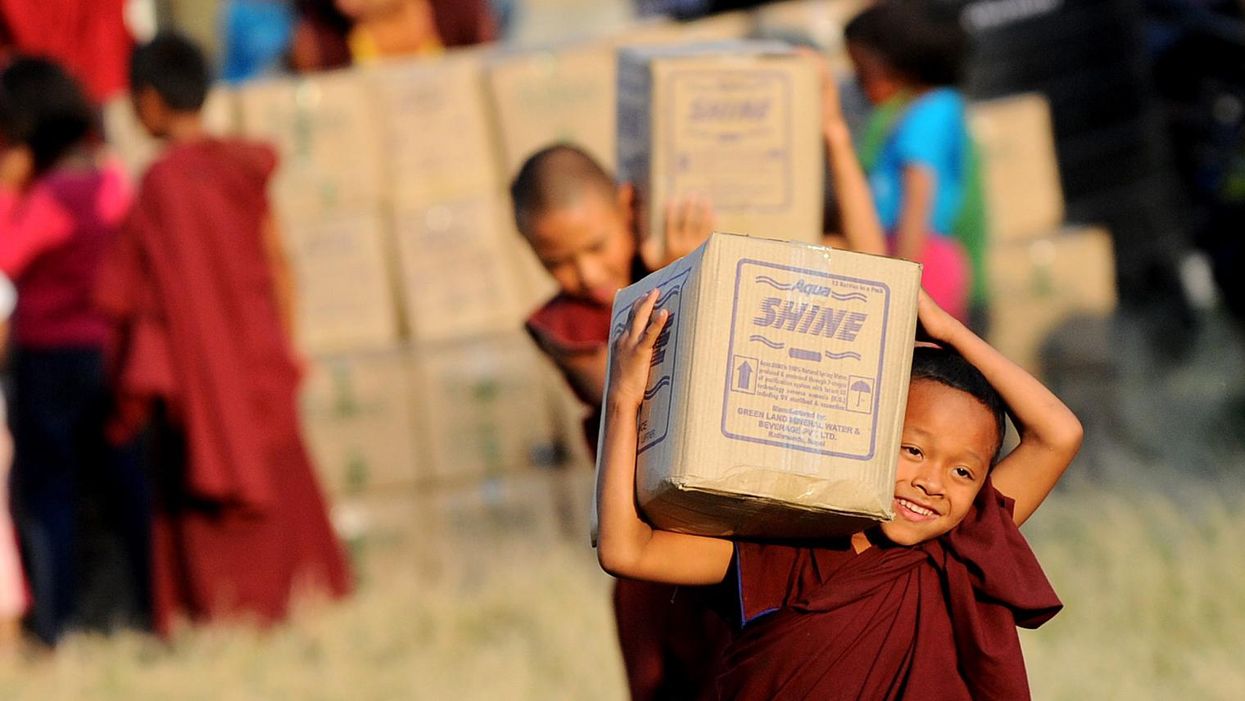News
Louis Dor
Aug 19, 2015

A young Nepalese Buddhist monk carries relief materials at a camp for earthquake survivors in Kathmandu
World Humanitarian Day, 19 August, is intended to foster a sense of global responsibility, promoting action and aid for the benefit of those living in dire conditions or circumstances.
The day was founded in 2003 in memory of 22 aid workers who were killed during a bombing of the UN headquarters in Baghdad.
The UN has released information on current humanitarian responses in the Global Humanitarian Overview.
It is currently responding to 37 affected countries, and 78.9 million people.
Perhaps most alarming in this report is that the responses are only 26 per cent funded. The UN has received $4.8 billion of funding for these projects, with $14 billion still required as of June.
Of the funding for humanitarian response projects, 55 per cent has gone to level three emergencies, those being Iraq, Syria, the Central African Republic and South Sudan.
906,093 people benefited from emergency water aid provided by the UN in Nepal, after the earthquake, and 1.8 million people received 10 day food rations.
In 2015, 5.4 million children were vaccinated against polio in Iraq and 5.5 million metres squared of land was declared free of unexploded ordnance and land mines in South Sudan.
More: The countries that contribute the most to the UN's refugee agency
More: The UN wants to take over your Twitter account. For a very good reason
Top 100
The Conversation (0)













